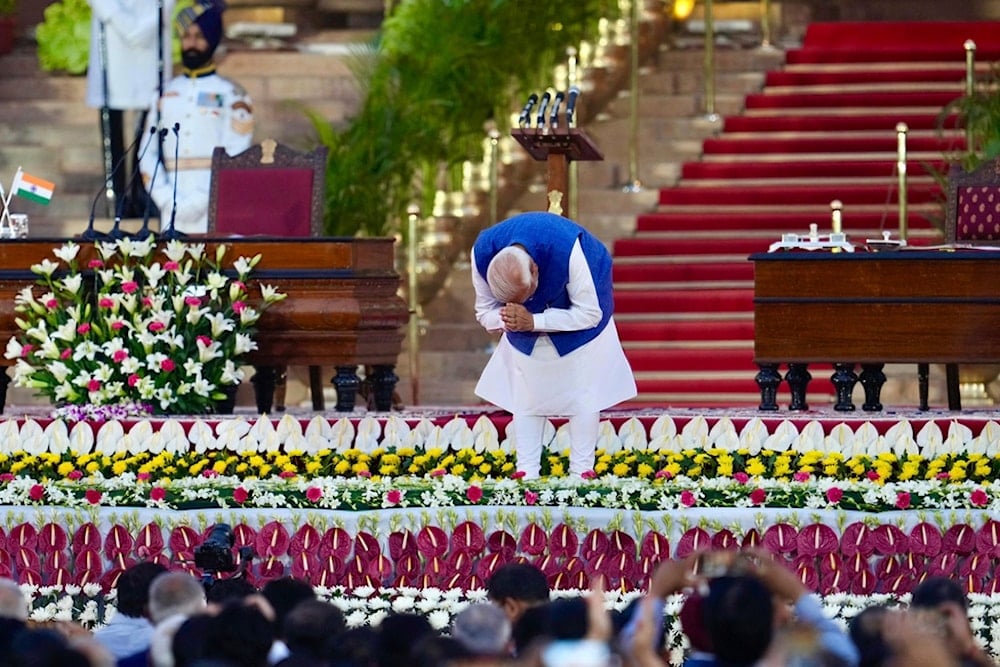India's Narendra Modi wins elections, sworn in for third term as PM
Narendra Modi has become the first prime minister to serve three consecutive terms in office following his 2024 win, after India's first-ever PM.
-

Narendra Modi greets the gathering as he arrives to take oath as the prime minister of India at the Rashtrapati Bhawan, in New Delhi, India, Sunday, June 9, 2024 (AP)
Narendra Modi secured his third term on Sunday and was sworn in as India's prime minister, following his coalition's, the National Democratic Alliance, win in the country's parliamentary elections.
For the first time in a decade, Modi's Bharatiya Janata Party did not secure an absolute majority, obtaining 240 seats, which is 32 seats shy of the majority required to form a government. However, by including the seats won by parties within the Modi-led National Democratic Alliance, the coalition achieved a total of 292 seats in parliament, enabling it to establish a new coalition government.
After assuming office, Modi became the first Indian leader since Jawaharlal Nehru to serve three consecutive terms, after the first Indian prime minister, Jawaharlal Nehru. Amit Shah and Rajnath Singh, who previously served as interior and defense ministers, respectively, continued in their roles and were sworn in again.
The swearing-in ceremony is being conducted under heightened security measures. More than 2,500 personnel, including five companies of paramilitary forces, commando units, drones, and snipers, are being deployed to ensure safety in the area around the presidential palace where the event is taking place.
Leaders from neighboring countries such as Sri Lanka, the Maldives, Seychelles, Bangladesh, Mauritius, Nepal, and Bhutan, were all in attendance. A source from Modi's party indicated that the guest list reflects the new government's priorities.
The BJP 'leading India to extremism'
Voting for India's general elections kicked off on April 19 with analysts believing that PM Narendra Modi’s Bharatiya Janata Party (BJP) was due to claim victory and score him a third term in office.
However, Modi's nationalist policies may prove to be costly, since 200 million Muslims live in India and have been subjected to persecution, discriminatory laws, and documented violence by the BJP-led state.
Ajay Lakhotra, a law student from Jammu City, said he would be voting for Congress and against the BJP, citing the high unemployment rate.
“If we look at the BJP, in their past two terms, their policies have been focused on communal politics and against the idea of India,” said Lakhotra.
“Under the BJP, our country is going towards extremism. As a young voter, this concerns me: I want development, better jobs, and a country that offers equal opportunities to people.”
Youngish Chopdar, a 35-year-old Muslim who owns a restaurant in Jaipur, said he feared another BJP term for the minorities.
“I will be voting for Congress because that is the only solution to counter the BJP’s politics of dividing India,” he said. “As a Muslim, I do not see a safe future if the BJP comes to power again. We need a strong opposition. In this situation, voting against the BJP is a revolutionary act.”

 3 Min Read
3 Min Read








